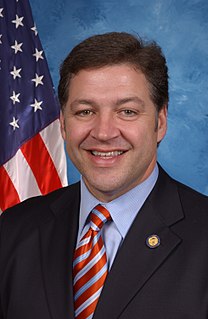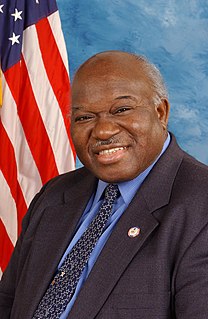A Quote by Tim Kaine
During a time of war, we ask our troops to give their best even to the point of sacrificing their own lives. When compared against that, how much of a sacrifice is it for a president to engage in a possibly contentious debate with Congress about whether military action is a good idea?
Related Quotes
We cannot simply speak out against an escalation of troops in Iraq, we must act to prevent it... There can be no doubt that the Constitution gives Congress the authority to decide whether to fund military action, and Congress can demand a justification from the president for such action before it appropriates the funds to carry it out.
We owe our troops the opportunity to serve in the best-planned, best-equipped, and best-led military force in the world, and we owe them the peace of mind that comes from knowing that they and their families will be taken care of if they sacrifice life, limb or the ability to sleep without war's nightmares. We owe them not just thanks and best wishes, but action, and action in our nation's capital.
[Barack Obama] is sending more troops [to Afghanistan], but they have also realized that we are not going to win that war through guns and tanks. We have to engage the neighbors, and it is good that there is a non-military strategy in addition to a military strategy. It is, at least, encouraging. Whether it will work or not, the jury is still put.
With 450,000 U. S. troops now in Vietnam, it is time that Congress decided whether or not to declare a state of war exists with North Vietnam. Previous congressional resolutions of support provide only limited authority. Although Congress may decide that the previously approved resolution on Vietnam given President Johnson is sufficient, the issue of a declaration of war should at least be put before the Congress for decision.
One very difficult decision was deciding to vote against the appropriations bill for the war. I had consistently said that I wanted to make sure our troops got the adequate and training in the war effort, despite the fact that I opposed the war at the point that the president decided to double down and send more troops. I had to vote against funding as a way of bringing it back to the table. That was a difficult decision for me.
In every major war we have fought in the 19th and 20th centuries. Americans have been asked to pay higher taxes - and nonessential programs have been cut - to support the military effort. Yet during this Iraq war, taxes have been lowered and domestic spending has climbed. In contrast to World War I, World War II, the Korean War and Vietnam, for most Americans this conflict has entailed no economic sacrifice. The only people really sacrificing for this war are the troops and their families.
There is no military solution to the war in Iraq. Our troops can help suppress the violence, but they cannot solve its root causes. And all the troops in the world won't be able to force Shia, Sunni, and Kurd to sit down at a table, resolve their differences, and forge a lasting peace. In fact, adding more troops will only push this political settlement further and further into the future, as it tells the Iraqis that no matter how much of a mess they make, the American military will always be there to clean it up.
We're taking action against evil people. Because this great nation of many religions understands, our war is not against Islam, or against faith practiced by the Muslim people. Our war is a war against evil. This is clearly a case of good versus evil, and make no mistake about it - good will prevail.
No power but Congress can declare war; but what is the value of this constitutional provision, if the President of his own authority may make such military movements as must bring on war? ... [T]hese remarks originate purely in a desire to maintain the powers of government as they are established by the Constitution between the different departments, and hope that, whether we have conquests or no conquests, war or no war, peace or no peace, we shall yet preserve, in its integrity and strength, the Constitution of the United States.






























